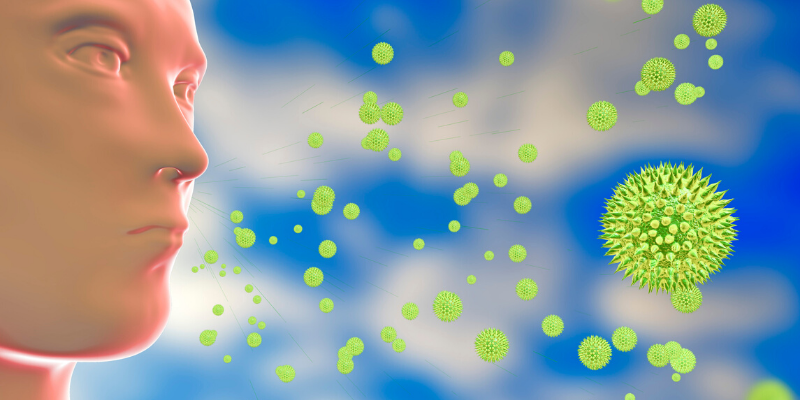
By: Dr. Marcelle MacCallum
Sniffles, runny nose, sneezing, sore throat, and feeling lousy are all symptoms affecting the respiratory system. But how do you know if it’s an allergy, cold or the flu?
It is easy to get symptoms mixed up because your immune system reacts to allergies and viruses with the same immune response, as this is how the body protects itself from foreign invaders.
The main difference between allergies, colds and flus is how they are contracted and their symptoms.
Colds and flus are infectious (easily transmitted) diseases caused by different viruses. These pathogenic microbes usually enter through mucosal surfaces of the respiratory system triggering an immune response that causes you to be sick.
Allergies are caused by the body’s immune system reacting to a substance in the environment. This substance is called an allergen. Common allergens are pollen, dust mites, animal dander, mold, medications, insect venom, and various foods. The substance triggers an immune response and results in an allergic reaction.
Allergy, Cold, and Flu all affect the respiratory system causing similar symptoms and reactions. There are common symptoms but also notable differences to help you decide and differentiate what you are suffering from.

Symptoms that often accompany allergic reaction include:
- Runny nose, clear mucous, stuffy nose, and sneezing bouts
- Wheezing and shortness of breath
- Dry cough
- Rashes
- Itchy, watery, puffy eyes, and itchy nose, throat and ears
- Fatigue
- Headache
- Symptoms will last all season
- Not contagious
- Contracted during the Spring and Fall
Note: people with asthma may have an exacerbation of their symptoms.
Symptoms of a cold include:
- Comes on gradually and are often milder than the flu
- Runny or stuffy nose coloured mucous
- Sore throat
- Sneezing
- Cough
- Headache or body aches
- Mild tiredness
- Symptoms last 7-10 days up to 2 weeks
- Highly contagious
- Contracted any time of the year
Flu symptoms can include:
- Comes on quickly and symptoms can be severe
- Runny or stuffy nose coloured mucous
- Dry hacking cough
- Moderate to high fever usually more severe in young children; not everyone will run a fever
- Sore Throat
- Shaking chills
- Headache
- Severe muscle or body aches
- Severe fatigue that may last up to two weeks
- Nausea and vomiting as well as diarrhea but not everyone
- Symptoms last 1-2 weeks
- Contracted during flu season from autumn to spring peaking in the winter months
View how to differentiate your symptoms with our guide >
Note: Contact your doctor right away if your symptoms do not improve or they become severe. A cold can develop into a bacterial infection that requires antibiotics (bronchitis, sinusitis, strep throat). The flu can develop into a more serious condition such as pneumonia.
Sources:
- American College of Allergy, Asthma, and Immunology and Centers for Disease Control and Prevention: cdc.gov/nchs/fastats/allergies.htm
- National Institutes of Health (NIH): nih.gov
ABOUT MPH
HOURS OF OPERATION
Mon: 7AM - 7PMTues: 7AM - 7PM
Wed: 7AM - 8PM
Thurs: 7AM - 7PM
Fri: 7AM - 5PM
Sat: 7AM - 2PM
Sun: 10AM - 3PM
Copyright © 2023 Movement Performance & Health. All rights reserved.

